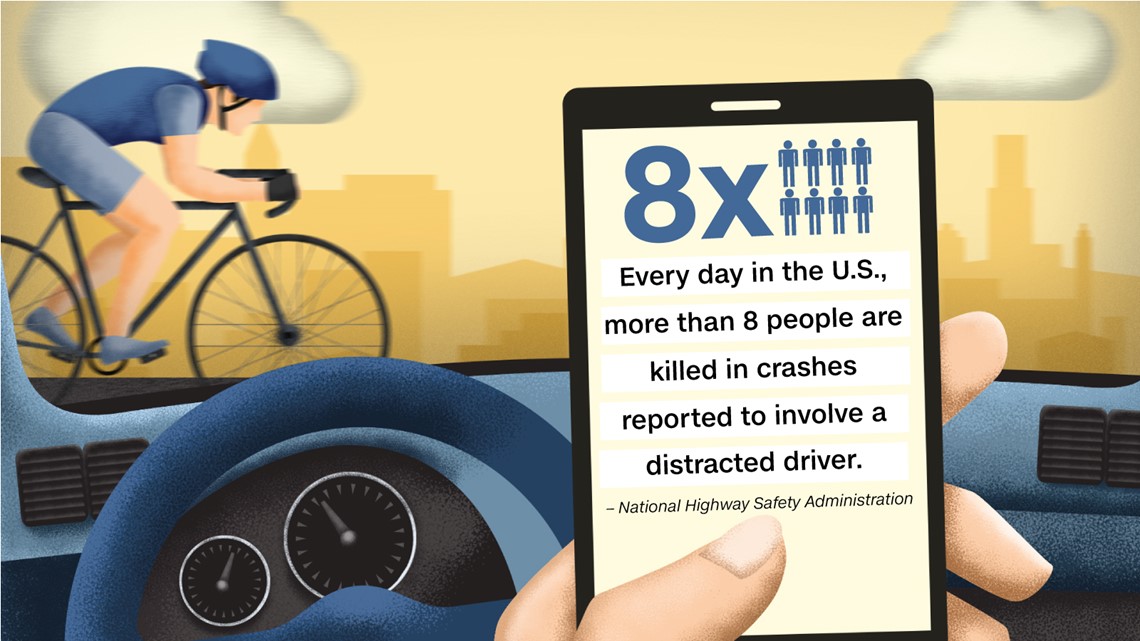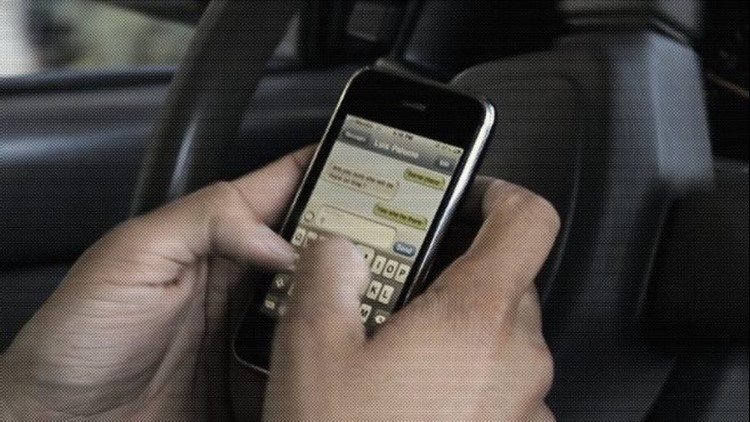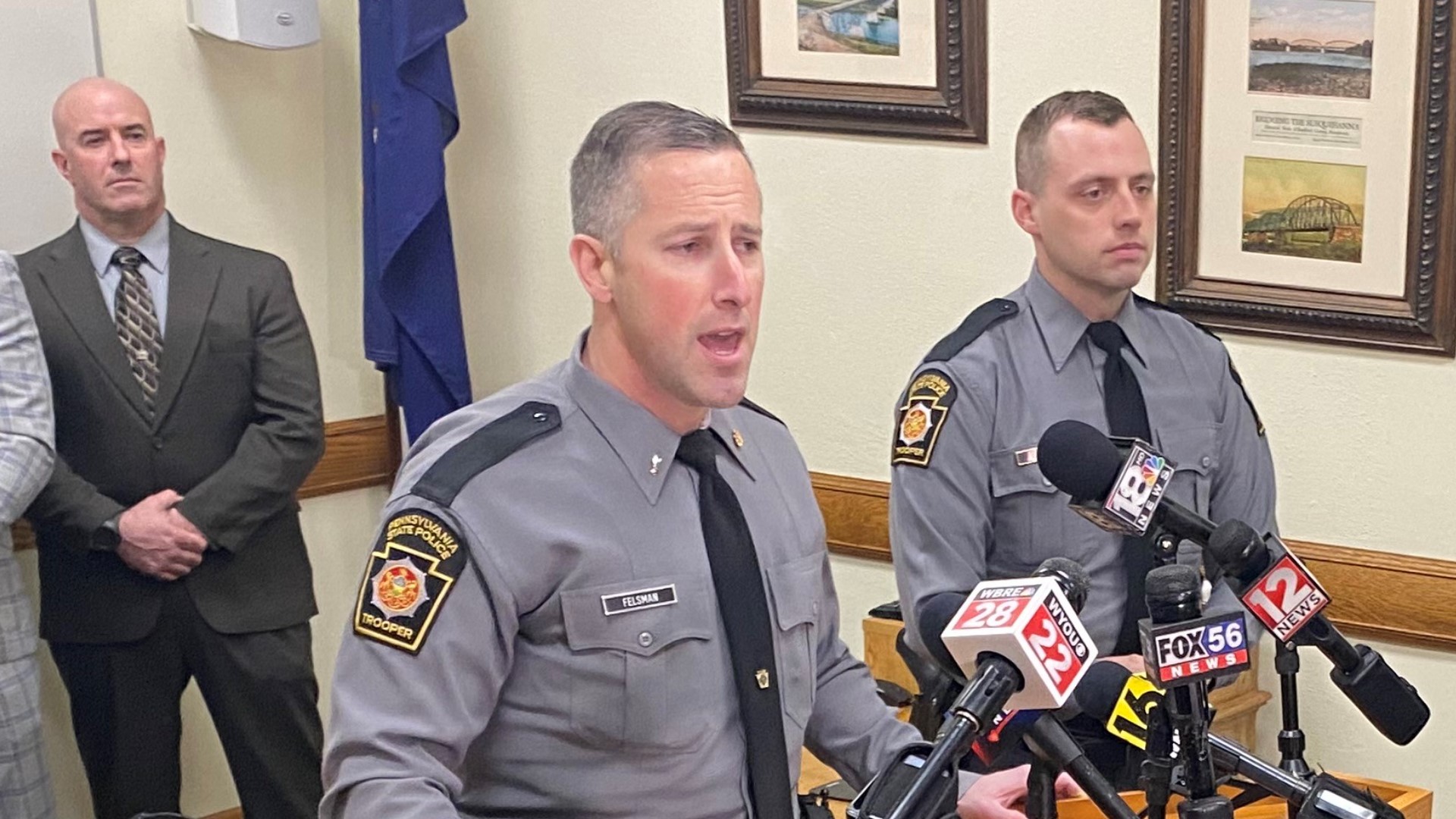Determined not to let another parent go through what he and his wife have, Lieberman approached the mobile forensics company Cellebrite, which provides technology to law enforcement to help investigators unlock mobile devices to solve crimes.
Lieberman asked Cellebrite whether there was a way it could dial its technology back, almost “dumb it down,” so officers could detect that someone was using their device while driving, but not exactly what they were doing.
“Can we do this in a way to meticulously respect privacy and at the same time give an honest and efficient evaluation?” Lieberman asked executives. “We want a balance of interests. We don’t want to be invading anybody’s privacy, but you know, you don’t want to feel like you’re driving on land mines every time you leave your house.”
Jim Grady, chief executive officer of Cellebrite Inc. Americas, said that when Lieberman approached his team, they immediately knew there was something they could do to help.
Distracted driving “is a real problem for society,” Grady said. “I’ve got kids, and I don’t want my kids to be doing this when they drive. I don’t want them to be victims of someone else’s driving.”
He continued, “We think it’s an important problem and that we can help, and that’s why we exist, right, to solve big hard problems that are important and that we have the ability to chase.”
With software using Cellebrite’s technology, an officer would connect a person’s phone to their laptop or other device and detect only the operating system logs, which would provide information about touchscreen use and whether someone was typing at the time of a crash.
“We’re specifically designing it to protect the privacy of the user,” Grady said, “so it’s particularly important not to say who you were texting or what you said in those texts, but instead just the evidence that you were texting and specifically, things like … the way you hit the keyboard and the frequency.”
Legislation called Evan’s Law — in honor of Lieberman’s son — was introduced in the New York Legislature over the winter and is making its way through the committee process. It would give officers the authority to use a Textalyzer when distracted driving is suspected.
Under the bill, which has been approved in one Senate committee and is pending in another, a person would not be criminalized for refusing to have their phone checked, but they could get their license suspended. The idea is that a person implies consent to drive without distractions when they receive a license, said Jay Shapiro, a New York attorney and former deputy district attorney.
Sponsors say they expect the Republican-led Senate to approve the bill, but anticipate opposition from the Democratic-led Assembly.
Similar legislation is being considered in Tennessee, New Jersey and the city of Chicago.
“We have optimism that we can do this, but there are certainly roadblocks, and new ideas don’t necessarily always get met with the most open minds all the time,” Lieberman said.
Biggest roadblock: Privacy concerns
The biggest of the roadblocks may be from privacy advocates, who worry that the Textalyzer will invite officers to seize personal phones without justification.
To that, Lieberman says his measure would focus on usage over content.
“I don’t care what you’re on the phone for. It’s not my business,” he said. “I don’t care if you’re texting with your mistress. … I don’t care about that. I care about that you were touching your phone, and so usage over content became a very key issue.”
The bill also follows the Breathalyzer in applying the concept of “implied consent.” You could refuse to take a Breathalyzer test if an officer stopped you and suspected that you were impaired, but you could lose your license for doing so. The same theory would apply to the Textalyzer, Lieberman said: You wouldn’t go to jail for refusing to submit to a test, but you could lose the privilege afforded to you by the Department of Motor Vehicles in granting you a driver’s license.
“Your license is not an entitlement to you. You can’t blow through red lights whenever you want,” he said. “If you do certain things, the (Department of Motor Vehicles) can take away your license. DMV said you have to take a Breathalyzer test to have the privilege to drive on the road. It’s a privilege to drive. It’s not a birthright.”
‘The stigma’s not there’


“Once people understood the issue better and people were held accountable and you knew people who lost their licenses … and you knew people who were injured because of” drinking and driving, “that brought a whole different level of urgency to that whole issue,” he said.
Currently, 46 states along with Pennsylvania, the District of Columbia, Puerto Rico, Guam and the US Virgin Islands have laws banning texting and driving. Fourteen states, along with D.C., Puerto Rico, Guam and the Virgin Islands, make it a crime to use a handheld device while driving.
But the penalties vary by state. In New York, a first offense could result in five driver violation points added to your license, which affects your insurance rates; a 120-day suspension of your license; and a fine as high as $200, according to the state’s Department of Motor Vehicles. Conversely, in South Carolina, you wouldn’t lose any points on your license, and the fine could be as low as $25, the equivalent of a parking ticket in many parts of the country.
Until drivers see more enforcement of distracted driving, realize that they could get caught and face stiff penalties, and realize that it can be just as dangerous as driving drunk, according to a study (PDF) by the University of Utah, we won’t see the shift in stigma that we saw for drinking and driving over the past few decades, Lieberman said.
“The stigma’s not there because we don’t understand what this can do to us,” he said. “Right now, there’s a feeling like, ‘Yeah, this looks bad, but it’s not going to happen to me.’ People don’t understand that this is actually happening … and we believe the reason is because it’s so under-reported.”



